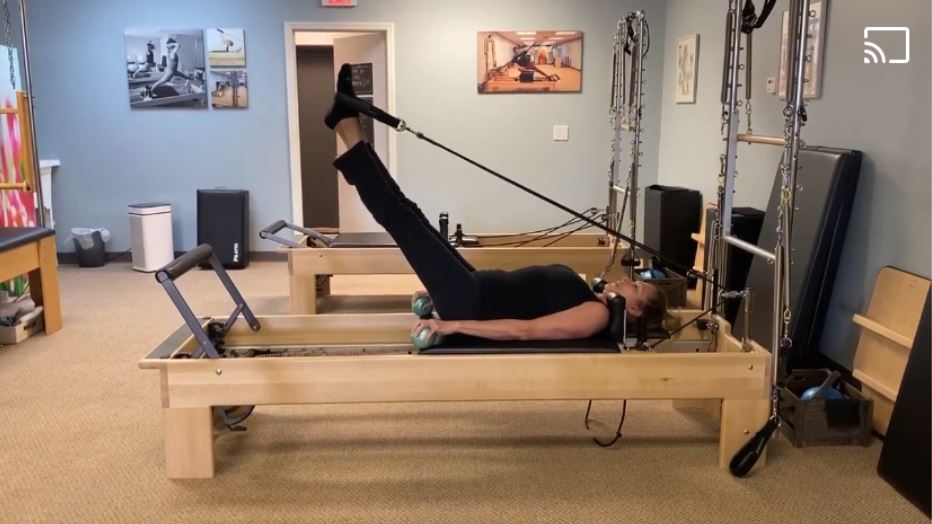What exactly is Pilates?
Pilates is a type of exercise similar to yoga that focuses on core strength, posture, balance, and flexibility through a series of movements. Pilates was created by German-born Joseph Pilates, who thought that mental and physical health were inextricably linked, and it has been demonstrated that practicing Pilates improves overall wellbeing as well as general fitness.
When Joseph Pilates first established his Manhattan studio in 1926, it was primarily utilized to assist people in recovering from injuries. Before becoming popular in the late 1990s, the exercise program gained traction in the dance world. It’s a low-impact workout that focuses on core strength, flexibility, and alignment, and it’s been linked to dancers’ long, slender muscles.

“In 10 sessions you will feel the difference, in 20 you will see the difference, and in 30 you’ll have a whole new body.” Joseph Pilates famously said.
What are the advantages of Pilates ?
Pilates has a wide range of benefits when practiced on a regular basis. Anyone, regardless of age, can begin. You can completely reshape your body by using controlled and progressive movements. It uses a procedure that is suitable for both men and women.
Keep in mind that mass isn’t the same as strength. In the gym, a lot of people lift heavy weights. Pilates forces you to pause and reflect on your actions. It is an exceptionally strong approach to tone the body by focusing the mind, managing your breathing, and utilizing internal resistance.
You’ll be able to connect with the rest of your body and keep it secure by strengthening your core. Pilates teaches you to pay attention to your body and how you move in the world by focusing on limiting muscular imbalances.
Pilates can improve your quality of life by improving your mental resilience in addition to strengthening your core muscles. Pilates’ mental health advantages include physical pain relief as well as improved emotional well-being. This means that as you’re improving your cardiovascular health and decreasing back pain, you’re simultaneously teaching yourself to breathe in ways that can help you feel less anxious and depressed.
Cardiovascular Health
Pilates can be useful for giving you all the cardio you need, without the high-impact strain on your body. According to a 2019 study published in the Journal of Clinical Medicine called Pilates Method Improves Cardiorespiratory Fitness: A Systematic Review and Meta-Analysis, Pilates may improve cardiovascular health by boosting your maximal oxygen uptake levels. This refers to how well you can breathe, regardless of your current health status. Cardiorespiratory fitness has been postulated as an independent predictor of several chronic diseases. If you want to boost your heart health, Pilates may be the way to do it.
Pilates and Balance

Pilates reconnects the mind and body. The way the exercises flow is dependent on coordination, and it focuses on training the body as a whole rather than specific sections.
Other exercises that may have been wobbly in the past, such as lunges and single leg bodyweight exercises, have improved, according to practitioners. Greater stability overall and feeling better suited to do other exercises might be a good effect.
Pilates exercises take more thought than other workouts that rely solely on repetition, which also keeps the mind engaged and alert. You must learn more than just a set of movements; you must also grasp the concept. With slow movements of the limbs while maintaining a strong core, your balance will quickly improve.
Some Pilates exercises are more difficult than others because they involve the introduction of a more intricate notion than mere physical movement.
Core strength and Pilates
How does Pilates help with core strength? Core strength incorporates more muscles than only rectus abdominals (abs).
The ability to maintain correct spine alignment/shoulder girdle posture and pelvic position while moving the limbs is defined as core stability. Local and global core muscles are the two types of core muscles. As a general rule, surface muscles are responsible for enormous forceful motions and are referred to as global muscles.
Muscles closer to the spinal column, which are found deeper in the body, have more delicate roles that help to stabilize the body. Local or stabiliser muscles are what they’re called. They are in charge of making minor modifications to the spine’s alignment.
Many Pilates exercises demand you to maintain your torso’s position while moving your limbs in various directions. This puts your body to the test in terms of balance, stability, and flexibility. This will strengthen your core and streamline your body over time.
During the ageing process, our bodies have a propensity to become stiff and inflexible which generates a badly aligned physique. A stiff neck, headaches, and back pain are some of the symptoms. Pilates strengthens your joints and mobilizes your spine, helping you avoid issues like tight hamstrings, bowed knees, rounded shoulders, and a forward-pointing neck.
Pilates and flexibility
Instead of bunching up the muscles, Pilates focuses on extending and expanding them. This causes them to develop longer and thinner. You’ll notice that you’re taller, longer, and slimmer. Pilates exercises are dynamic stretches, which means they involve active movements.
A muscle is stretched but is not kept in the final position, and this is usually done through movement. This stretching technique will help you enhance your range of motion. General flexibility will help you avoid injury, enhance your posture, and improve your overall health.
Pilates and psychological well-being
Several studies have shown that exercise can help with mental health, and Pilates is no exception. Breathing techniques used in yoga and Pilates have been demonstrated to lower stress and blood pressure. Deep breathing also promotes proper blood flow and aids sleep.
Pilates can help you feel better because physical exercise releases endorphins, which give you a good feeling in your body. Being active, according to some scientists, can improve wellbeing by increasing self-confidence, self-control, and the ability to rise to a challenge.
Pilates reduces sadness, anxiety, and exhaustion, according to a 2018 study published in the journal Complementary Therapies in Medicine entitled The effects of pilates on mental health outcomes: A meta-analysis of controlled trials. Remarkable changes in people’s emotions were observed in multiple published studies examined by researchers. These studies also found that Pilates practice enhanced energy, implying that your time on the mat can give you the boost you need to improve your overall mental health.
